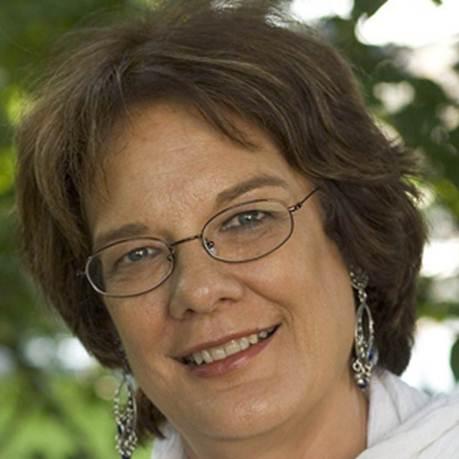Prize to a changemaker
The Wolof words jàmm (peace/ unity), jom (respect/dignity) and mun (patience/perseverance) are central to values held by many of Senegal’s communities.
Main content
“Respect for others is almost as important as food and shelter,” says Molly Melching. She is founder and director of Tostan, a Senegalese community-based organisation engaged in human rights training and development.
Melching visited the University of Bergen in September to receive the Bjørn Christensen Memorial Price awarded by Faculty of Psychology. She is the first recipient of the price in the field of international development.
Tostan’s approach to human rights education and development has won the organisations several awards and positive citations by UN agencies and governments as provider of best practices, especially in the work to eliminate the tradition of Female Genital Mutilation (FGM).
Transforming social norms
Tostan’s seed was planted in 1974 when Molly Melching first arrived in Senegal as an exchange student from the United States. She came back as a Peace Corps volunteer, learned the Wolof language and helped develop a community empowerment programme using traditional methods of learning. The programme focused on local ownership over the development process, encouraging the communities to find their own solutions.
She says that she never thought she would get involved with Female Genital Cutting (FGC).
“What do I know? I am a white American,” says Molly Melching.
So she was more than a little surprised when in 1992, just after a year of founding Tostan and developing its community development programme, she was told by other women in the organisation that “this is our organisation too, and we want to talk about this”.
“Tostan never told women to abolish FGC, but women who had completed our programme came together and said that they had seen too much suffering. They asked themselves whether their practices reflected values held by their society and decided to change the way things were done,” explains Melching.
Other villages reacted with hostility, but a local imam named Demba Diawara thought that such social change could not be achieved in one village alone. The tradition of FGC is required for a girl to marry into another family. Diawara thought that ending the practice would require agreement among groups whose children marry one another. He therefore decided to walk from village to village to raise awareness about the dangers of FGC in the surrounding communities.
Today, more than 6,500 communities in eight countries have publicly declared to have abolished FGC. Melching explains that although abolishment is not a 100 per cent following a public declaration, such declarations are critical in the process of abandoning and necessary for building critical mass, eventually leading FGC to becoming a thing of the past.
“Many women would have wanted to abolish the practice, but they were afraid of the ramifications of social sanctions. What matter is to build a critical mass: it takes critical mass to reach the tipping point,” she says.
Influenced by social theory
Tostan is influenced by Cristina Bicchieri’s work on social norms, which has had enormous impact on the practice of female genital mutilation in all the African countries where Tostan works. Tostan’s approach to social change entrepreneurship and development is a 3-year programme which almost works like a school, fostering new norms that will eventually be embraced by the whole community.
The first year focuses on “preparing the soil for planning” through 98 two-hour sessions on issues like democracy, human rights, responsibility, problem-solving as well as hygiene and health. In year two and three the seeds of change are sown through sessions on empowerment like literacy, math, micro-credit and management skills.
Melching reluctantly founded Tostan in 1991, thinking she did not have what it would take to run an organisation. Tostan has since developed her original concepts for community-led change. Today, Tostan runs programmes in 22 languages across eight African countries and is supported at the international, national, and grassroots levels.
Melching admits that she has made many mistakes since the founding of Tostan in 1991. For example, the Human Rights class was initially a “women rights class”, something that made men suspicious. A class on “children’s rights” made the parents suspicious. “What about our rights, parents’ rights?” said people. In 200 Tostan decided to redesign their whole approach to teaching human rights by including everybody’s rights, and thus including the whole community.
The strategy is “organised diffusion” and the methodology is song, dance, poetry and theatre – fun to encourage creativity.
“Fun is really important as many people in Senegal think that learning is something that is done sitting in rows,” says Melching with a smile.
